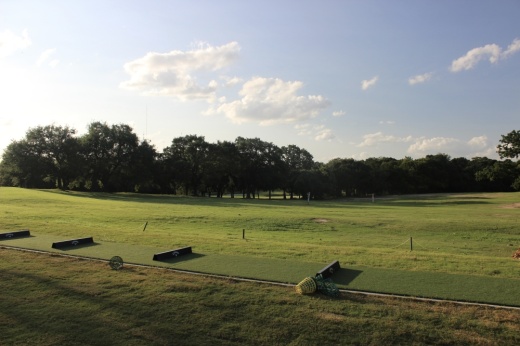A decision on the preservation of Lions Municipal Golf Course, or Muny, was given yet another extension amid years of debate over the property by Austin, The University of Texas and local stakeholders.
The big picture
For decades, the city has leased the UT-owned golf course for public recreation. The popular spot is nationally recognized as one of the South’s first desegregated golf courses, but its future has remained uncertain as Austin and UT have sought to reach a deal over the site’s use or possible sale.
Austin continues to lease Muny from the university for less than $500,000 annually to operate as a public golf course. But UT previously signaled intentions to redevelop some or all of the property that's now appraised at more than $680 million, and is one of several it owns in Austin under an early 1900s land gift requiring the sites to benefit the university.
Spokesperson Mike Rosen said UT continues to view the property as an asset for its student population.
"As with all gifts entrusted to us, we will continue to strive to be good stewards of the Brackenridge land for the benefit of the current and future generations of students we serve," he said.
Muny’s high price tag likely puts it out of reach of an outright purchase by the city or through private conservation efforts led by local golf figures and advocates. And 2021 civic rezoning of UT’s tracts to set standards for possible future development, prompted by a stalemate with Austin over how the university could use its land, ended up stalling out. The course’s outlook has also drawn attention at the state level.
Then-state Sen. Kirk Watson forwarded legislation in 2019 that created the Save Historic Muny District to work with other entities on the course’s preservation by May 2021. However, lawmakers have had to repeatedly extend the district's lifespan given a lack of local progress toward a result. After extensions in 2021 and in 2023, a bill from state Rep. Donna Howard passed this year pushed its dissolution date to May 2027—which some lawmakers said could be the district's final deadline.
What they’re saying
In an October statement, a city spokesperson thanked Howard for her legislation and said Austin's discussions with UT are continuing. Howard previously called the yearslong process a “difficult negotiation” that’s taken longer than anticipated.
“I know that there’s still a sincere effort to try to make this work. So we just need the extension of time to hopefully make sure that that does happen,” she said during a March Texas House hearing.
SHMD Chair Ken Tiemann also called the process difficult given the desire to reach a “win-win” for UT and Austin and said he's still hopeful for a positive outcome.
“The value of 141 acres in West Austin, it frankly would be the largest historic preservation from a financial standpoint possibly ever. ... It’s complex, and I think the value of the land, nobody wants to make a mistake,” he said in March.





